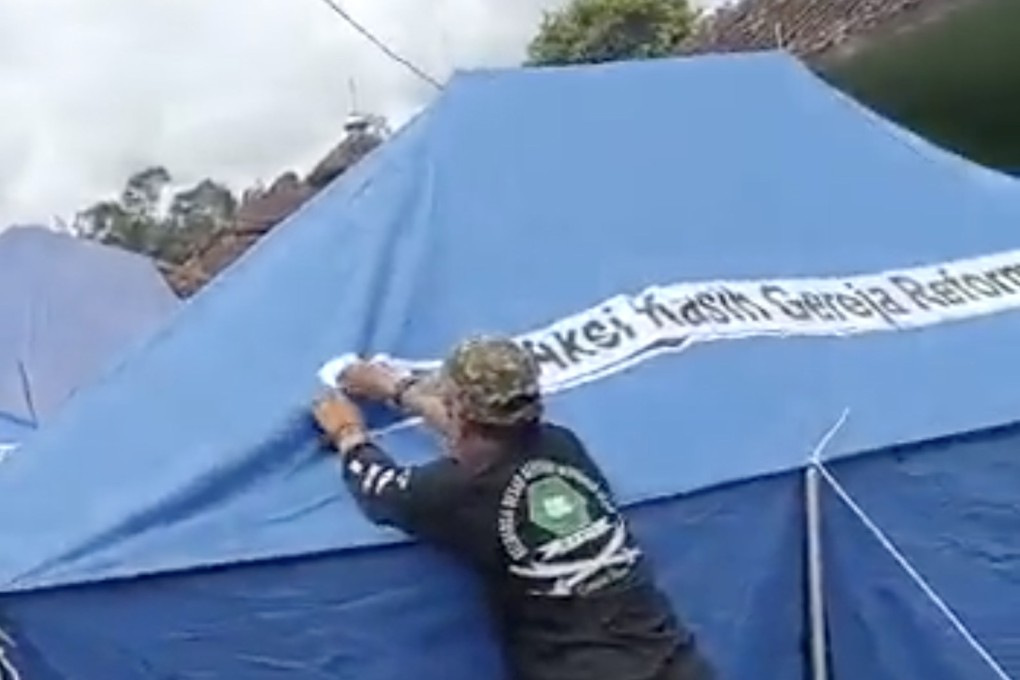Advertisement
Indonesian Islamist group faces backlash for targeting church-donated tents for quake victims
- An Islamist group ripped off labels from tents donated by a church for survivors of the Cianjur earthquake, over fears it was trying to convert Muslims
- Islamic Reformist Movement has links to banned extremist group Islamic Defenders Front, and some members were in 2015 suspected of being affiliated with Isis
Reading Time:3 minutes
Why you can trust SCMP
5

Authorities in Indonesia are urging religious tolerance, after a conservative Islamist group tore off labels from tents that were donated by a church for survivors of the Cianjur earthquake.
In a Twitter video that went viral on Saturday, a group of people, later identified as members of the conservative Islamic Reformist Movement, were seen removing labels emblazoned with the words “The Reformed Evangelical Church of Indonesia” from the blue tents donated by the church to support survivors of the disaster.
The shallow 5.6-magnitude quake hit Cianjur last week, killing at least 321 people as of Sunday. Some 62,000 homes were damaged and more than 73,000 people were displaced, according to the national disaster mitigation agency.
Advertisement
In the video, a man is heard saying “let’s destroy it”, referring to the tents. Another man, wearing a long robe and white cap, can be seen recording while smiling.
The removal of the tags underlines the lingering fear of Christianisation in the world’s most populous Muslim majority nation.
Advertisement
Cianjur police chief Doni Hermawan said the men dismantled the tents donated by the church in four villages, although they were not from the areas.
Advertisement
Select Voice
Select Speed
1.00x